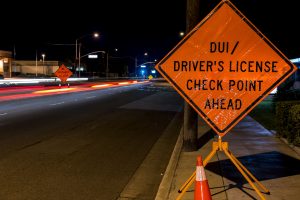
Since the early 1980s, random sobriety checkpoints have become a common sight along America’s roadways. But for those who’ve yet to experience one, they can seem confusing. Here are 5 essential facts you need to know when facing a roadside sobriety checkpoint. Keep in mind that if you are arrested at a DUI checkpoint, having a trusted bail bond agency will help to secure your freedom.
Can the police stop you without probable cause?
In most situations, a police officer is required to demonstrate a specific reason for stopping a motorist who is not suspected of committing a crime. Referred to as “probable cause,” such reasons may include erratic driving, failure to signal, or a mechanical problem with the driver’s vehicle (such as a broken tail light). Sobriety checkpoints, however, escape the probable cause provision because they are designated as “regulatory checkpoints.” An officer does not need probable cause to check that a motorist has their paperwork (such as their license, registration, and insurance cards) with them in the vehicle. If during that check, the officer notices signs of impairment (such as slurred speech, difficulty following commands, the smell of alcohol, or a visible open container of alcohol in the vehicle), the officer can ask you to perform a sobriety test.
Are the police limited in what they can do at a checkpoint?
Random sobriety checkpoints must follow certain rules in order for any arrests or citations to be admissible.
- Checkpoints must be planned in advance.
- A supervising officer on-scene must make all constitutional decisions.
- Changes to traffic patterns must be clearly marked, both to announce the stop and to protect motorists and pedestrians while the checkpoint is in operation.
- All care must be taken not to delay lawful drivers unnecessarily.
- Checks of individual drivers must be random, and CANNOT be based on a driver’s age, race, or gender.
- Checkpoints cannot be in place permanently and are usually limited to a few hours of operation.
- Officers are allowed to look inside your vehicle for objects in plain view but DO require probable cause to request a search.
- You are required to submit to sobriety testing if asked to do so by an officer. If you refuse, you may be arrested for suspected DUI.
- You are NOT required to consent to a search of your vehicle or your person.
- Attempting to evade a checkpoint can result in you being stopped by law enforcement and can constitute probable cause.
What happens at a sobriety checkpoint?
All checkpoints must be clearly marked by road signage. An officer will typically select random motorists from the line and ask to see their license, registration, and insurance. If the officer finds any problem with your paperwork (such as an expired registration), you may be pulled aside and cited. If an officer suspects that you are driving while under the influence of drugs or alcohol, he or she may ask you to perform a field sobriety test. Refusal to perform the test will likely result in your arrest for suspected DUI. The test itself can involve several elements. For example, an officer may ask you to walk, heel-to-toe, in a straight line. You may also be asked to extend your arms to your sides and, with your eyes closed, touch an index finger to your nose. In addition to these coordination tests, you may also be subjected to breath analysis using a Breathalyzer. A driver with a blood alcohol content (BAC) of more than 0.08% is considered to be impaired. Failure of any or all of these tests will likely trigger your arrest for DUI.
How are checkpoint sites selected?
Typically, community police forces use data on previous drunk driving accidents or trouble spots to help them choose among prospective locations for a checkpoint. If an area has a history of DUI crashes or is near an entertainment district where many bars or clubs are located, it could raise the likelihood that a DUI checkpoint could be placed there. Ultimately the locations are selected by law enforcement in your community.
What can you do if you feel a sobriety checkpoint violated your rights?
If you feel that a sobriety checkpoint violated your civil rights, you may seek the aid of an attorney in challenging your arrest. Remember, however, that if you bring suit against law enforcement, the burden of proof rests on you. So you should document any evidence you have that may show officers broke from procedure or defied the law during your checkpoint encounter. Potential violations may include failure of law enforcement to properly announce or mark the checkpoint, conducting a search of your vehicle without consent or probable cause, or racial profiling of motorists. An attorney who specializes in DUI cases can help you determine the strength of your case and can offer guidance on how to proceed.
At Bond James Bond, we work with defendants to help them secure their release on bond pending trial. If you or a loved one has been arrested and charged with DUI, contact u today and learn how our experienced and licensed bond agents can help.
Bond, James Bond, Inc. can handle any size or type of Georgia bail bonds in Barrow County, Bartow County, Cherokee County, Clarke County, Cobb County, Floyd County, Gordon County, Gwinnett County, Paulding County and Polk County. We are always open - 24 hours a day, 7 days a week, including holidays. We have 11 locations that are conveniently located to serve you better.
